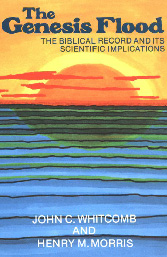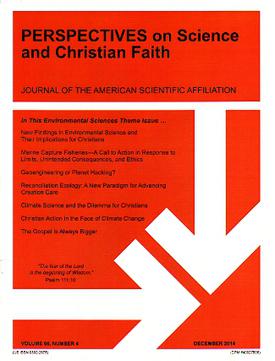
Creationism is the religious belief that nature, and aspects such as the universe, Earth, life, and humans, originated with supernatural acts of divine creation. In its broadest sense, creationism includes a continuum of religious views, which vary in their acceptance or rejection of scientific explanations such as evolution that describe the origin and development of natural phenomena.

The National Center for Science Education (NCSE) is a not-for-profit membership organization in the United States whose stated mission is to educate the press and the public on the scientific and educational aspects of controversies surrounding the teaching of evolution and climate change, and to provide information and resources to schools, parents, and other citizens working to keep those topics in public school science education. Based in Oakland, California, it claims 4,500 members that include scientists, teachers, clergy, and citizens of varied religious and political affiliations. The Center opposes the teaching of religious views in science classes in America's public schools; it does this through initiatives such as Project Steve. The Center has been called the United States' "leading anti-creationist organization". The Center is affiliated with the American Association for the Advancement of Science.

Young Earth creationism (YEC) is a form of creationism which holds as a central tenet that the Earth and its lifeforms were created by supernatural acts of the Abrahamic God between about 6,000 and 10,000 years ago. In its most widespread version, YEC is based on the religious belief in the inerrancy of certain literal interpretations of the Book of Genesis. Its primary adherents are Christians and Jews who believe that God created the Earth in six literal days. This is in contrast with old Earth creationism (OEC), which holds literal interpretations of Genesis that are compatible with the scientifically determined ages of the Earth and universe. It is also in contrast to theistic evolution, which posits that the scientific principles of evolution, the Big Bang, abiogenesis, solar nebular theory, age of the universe, and age of Earth are compatible with a metaphorical interpretation of the Genesis creation account.

Duane Tolbert Gish was an American biochemist and a prominent member of the creationist movement. A young Earth creationist, Gish was a former vice-president of the Institute for Creation Research (ICR) and the author of numerous publications about creation science.

Progressive creationism is the religious belief that God created new forms of life gradually over a period of hundreds of millions of years. As a form of old Earth creationism, it accepts mainstream geological and cosmological estimates for the age of the Earth, some tenets of biology such as microevolution as well as archaeology to make its case. In this view creation occurred in rapid bursts in which all "kinds" of plants and animals appear in stages lasting millions of years. The bursts are followed by periods of stasis or equilibrium to accommodate new arrivals. These bursts represent instances of God creating new types of organisms by divine intervention. As viewed from the archaeological record, progressive creationism holds that "species do not gradually appear by the steady transformation of its ancestors; [but] appear all at once and "fully formed."

The history of creationism relates to the history of thought based on the premise that the natural universe had a beginning, and came into being supernaturally. The term creationism in its broad sense covers a wide range of views and interpretations, and was not in common use before the late 19th century. Throughout recorded history, many people have viewed the universe as a created entity. Many ancient historical accounts from around the world refer to or imply a creation of the earth and universe. Although specific historical understandings of creationism have used varying degrees of empirical, spiritual and/or philosophical investigations, they are all based on the view that the universe was created. The Genesis creation narrative has provided a basic framework for Jewish and Christian epistemological understandings of how the universe came into being – through the divine intervention of the god, Yahweh. Historically, literal interpretations of this narrative were more dominant than allegorical ones.

The Creation Research Society (CRS) is a Christian fundamentalist group that requires of its members belief that the Bible is historically and scientifically true in the original autographs, belief that "original created kinds" of all living things were created during the Creation week described in Genesis, and belief in flood geology.

The Genesis Flood: The Biblical Record and its Scientific Implications is a 1961 book by young Earth creationists John C. Whitcomb and Henry M. Morris that, according to Ronald Numbers, elevated young Earth creationism "to a position of fundamentalist orthodoxy."
John Clement Whitcomb Jr. was an American theologian and young Earth creationist. Along with Henry M. Morris, he wrote The Genesis Flood, which influenced many conservative American Christians to adopt flood geology.
Karl Willard Giberson is a Canadian physicist, scholar, and author, specializing in the creation–evolution debate. He has held a teaching post since 1984, written several books, and been a member of various academic and scientific organizations. He formerly served as vice president of the BioLogos Foundation.
The level of support for evolution among scientists, the public, and other groups is a topic that frequently arises in the creation–evolution controversy, and touches on educational, religious, philosophical, scientific, and political issues. The subject is especially contentious in countries where significant levels of non-acceptance of evolution by the general population exists, but evolution is taught at public schools and universities.
The Creation Science Movement is a British Creationist organisation which lays claim to the title "the oldest creationist movement in the world". It was a member of the Evangelical Alliance until its resignation in 2008. It is a registered charity.

The Creationists: From Scientific Creationism to Intelligent Design is a history of the origins of anti-evolutionism by Ronald Numbers. First published in 1992 as The Creationists: The Evolution of Scientific Creationism, a revised and expanded edition was published under the current title in 2006.
The Victoria Institute, or Philosophical Society of Great Britain, was founded in 1865, as a response to the publication of On the Origin of Species and Essays and Reviews. Its stated objective was to defend "the great truths revealed in Holy Scripture ... against the opposition of Science falsely so called." Although it was not officially opposed to evolution, it attracted a number of scientists sceptical of Darwinism, including John William Dawson and Arnold Guyot.
The Biblical Creation Society (BCS) is a United Kingdom-based creationist organisation founded in 1977 by Scottish minister Nigel M. de S. Cameron (now President of the Center for Policy on Emerging Technologies and a group of evangelical students, who were concerned about the popularity of theistic evolution among conservative Christians, but were repelled by the "wholly negative" attitude of the Evolution Protest Movement. Although inspired by the scientific creationism of John C. Whitcomb and Henry M. Morris, it refused to limit its membership to only Young Earth creationists, and in its name rejected American attempts to separate scientific creationism from its Biblical roots. The organisation is based in Rugby, Warwickshire.
Richard H. Bube was an American scientist.

Perspectives on Science and Christian Faith, subtitled Journal of the American Scientific Affiliation, is the academic publication of the American Scientific Affiliation.
F. Alton Everest (1909–2005) was an American acoustical engineer, a cofounder of the American Scientific Affiliation, and its first president.
Russell L. Mixter was an American scientist, noted for leading the American Scientific Affiliation (ASA) away from anti-evolutionism, and for his advocacy of progressive creationism.

The Canadian Scientific & Christian Affiliation (CSCA) is a fellowship of scientists and those interested in science, who want to understand how science can best interact with the Christian tradition. The CSCA is the Canadian expression of the American Scientific Affiliation (ASA) which publishes a peer-reviewed academic journal, Perspectives on Science and Christian Faith, covering topics related to faith and science from a Christian viewpoint.







